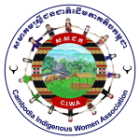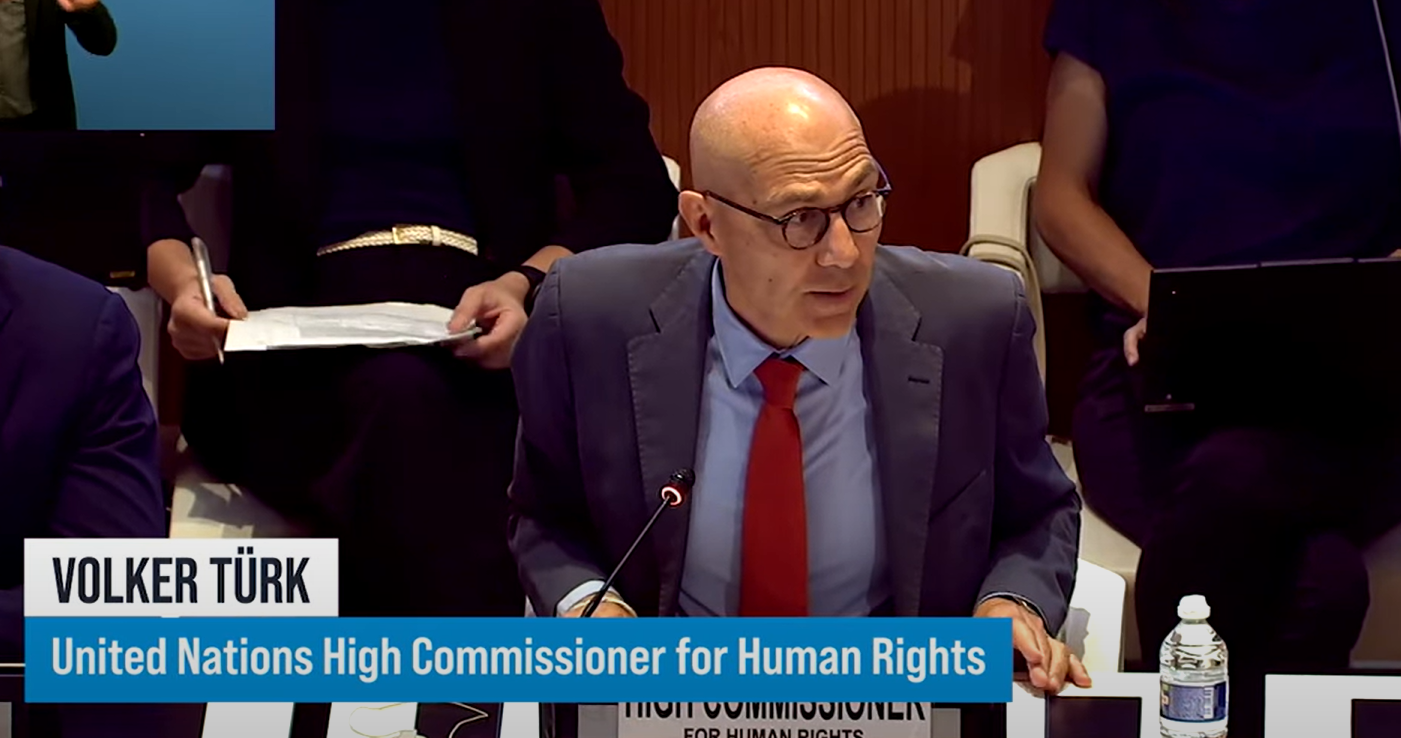United Nations High Commissioner for Human Rights, Volker Türk
At 18th session Expert Mechanism on the rights of Indigenous Peoples
Madame Chair,
Mr. President,
Members of the Expert Mechanism,
Representatives of Indigenous Peoples,
Excellencies,
Distinguished participants,
I am pleased to open the eighteenth session of the Expert Mechanism on the rights of Indigenous Peoples.
These sessions are crucial to advancing the human rights of Indigenous Peoples by focusing on their specific needs and rights and creating momentum for change.
Over the past few years, there have been important developments which promote respect for the rights of Indigenous Peoples across several regions.
For example, Colombia recently formalized Indigenous local governments, granting them authority to oversee budgets and administration within their territories. In Finland, recent legal reforms have strengthened Indigenous self-identification and institutional autonomy. The Guatemalan government holds monthly meetings with Indigenous Peoples, leading to several local agreements on territorial claims, among other issues.
There is also growing recognition of Indigenous approaches and worldviews.
In New Zealand, following the Treaty of Waitangi, certain rivers have been granted legal identity. In South Asia too, some rivers have specific legal recognition. Likewise, certain mountains and land of significance to Indigenous Peoples in various countries have been endowed with rights of their own.
And just two weeks ago, in an important advisory opinion on States’ obligations to protect and restore ecosystems, the Inter‑American Court of Human Rights specifically noted that State actions must respect Indigenous knowledge.
Despite these advances, violations against Indigenous Peoples remain widespread.
Around the world, mining and extractive activities, deforestation and large-scale agriculture exploit and destroy lands and territories without the consent of Indigenous Peoples. Many Indigenous Peoples still lack formal recognition of land rights, making it harder to defend their territories.
Indigenous Peoples are also among the most exposed and vulnerable to climate chaos. Droughts, floods, deforestation and wildfires are destroying the ecosystems that have sustained them for millennia.
Across regions, Indigenous Peoples face pervasive discrimination in accessing justice, health, education, and other services.
Indigenous human rights activists continue to face threats and reprisals. According to data gathered by my Office, in 2023 and 2024, 26% of defenders who were killed were Indigenous people, largely in the Americas. I am very concerned about widespread impunity for the killings of courageous activists. I urge States to address this immediately by investigating these crimes and prosecuting those responsible.
Distinguished participants,
Digital technologies, including artificial intelligence, are fundamentally reshaping our societies, and are having an impact on Indigenous Peoples.
On the one hand, AI tools, including speech recognition and translation models, are preserving and reviving Indigenous languages. AI can support Indigenous Peoples in monitoring environmental changes to help conserve biodiversity.
On the other hand, States are using AI-driven surveillance tools to track and harass Indigenous rights defenders. Information from Indigenous communities, including maps and artwork, is used to train AI models without consent. And Indigenous Peoples are still largely excluded from key policy decisions on the development of AI.
It will be up to all of us to decide how to develop and roll out new technologies, to minimize the risks they pose and maximize their potential for good.
It will be important for human rights to be central to the development use and application of AI. Without human rights guardrails, these rapid developments risk reproducing and entrenching the inequalities of our world – including those experienced by Indigenous Peoples.
My Office is beginning to examine the impact of AI on Indigenous Peoples, including on the use of Indigenous data.
I welcome the study of the Expert Mechanism that will be presented today, which contains important recommendations on protecting Indigenous Peoples’ right to data. Specifically, it highlights that AI must respect Indigenous data sovereignty as a component of Indigenous Peoples’ self-determination and self-governance.
In the face of these tremendous challenges, the road ahead will not be easy.
We must unite our efforts so that policies and decisions going forward on climate action, on the development of digital technologies, and beyond, reflect the wisdom and experience of Indigenous Peoples.
This is not only essential to respect and fulfil the human rights of Indigenous Peoples. There is growing recognition that the ideas and approaches of Indigenous Peoples hold important lessons for all of us.
For example, traditional Indigenous practices, including the communal management of forests and fisheries, can mitigate the impact of climate change.
More generally, knowledge of the land and respect for the rights of nature are inherent to cultural practices, religions, and traditional laws of many Indigenous Peoples.
This worldview can inspire new models of engagement with our planet – including constitutional recognition that nature and its defenders have legal standing; stronger protection against environmental harm; and recognition of the crime of ecocide, including under the Rome Statute of the International Criminal Court.
Indigenous Peoples can also make clear contributions to climate justice, particularly on the minerals needed for the transition to renewable energy. My Office supported Indigenous representatives’ engagement with the Secretary-General’s Panel on Critical Energy Transition Minerals. The report recommends that human rights be respected where minerals are mined, and along the entire value chain.
Distinguished participants,
I commend the leadership of this Council in ensuring the meaningful participation of Indigenous Peoples.
In September 2024, for the first time, Indigenous representatives from the seven Indigenous socio-cultural regions addressed a regular session of the Council — as direct representatives of their Peoples. I hope other bodies of the United Nations will follow the Council’s example.
The UN Voluntary Fund for Indigenous Peoples is a key tool for participation. Thanks to the Fund, more than 4,000 representatives of Indigenous Peoples have expressed their views in international processes. I urge States to strengthen their support to the Fund, which faces a critical shortfall, allowing it to support only about 150 of more than 6,000 applicants every year.
Before I close, I would like to express my deep concern that Indigenous Peoples continue to face intimidation and reprisals for engaging with the United Nations. This is unacceptable and must stop. Speaking up should not have to come at the cost of people’s safety.
International meetings like this are a platform for Indigenous Peoples to raise their concerns and share their experience. They are also a space for the international community to listen to Indigenous Peoples’ knowledge and innovative approaches to some of our world’s most urgent challenges.
I wish you all a fruitful session and look forward to its outcomes, including your proposals to the Human Rights Council.

